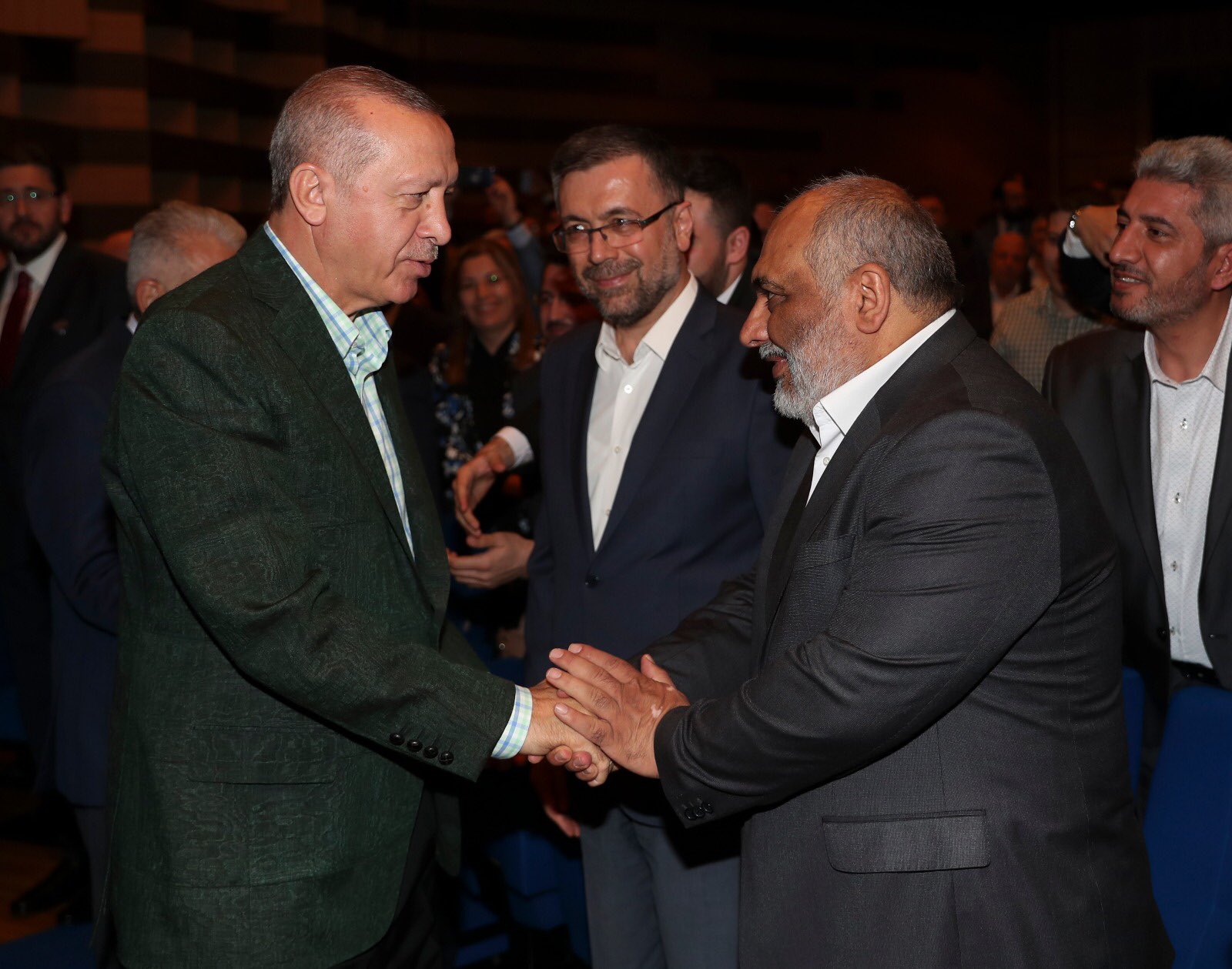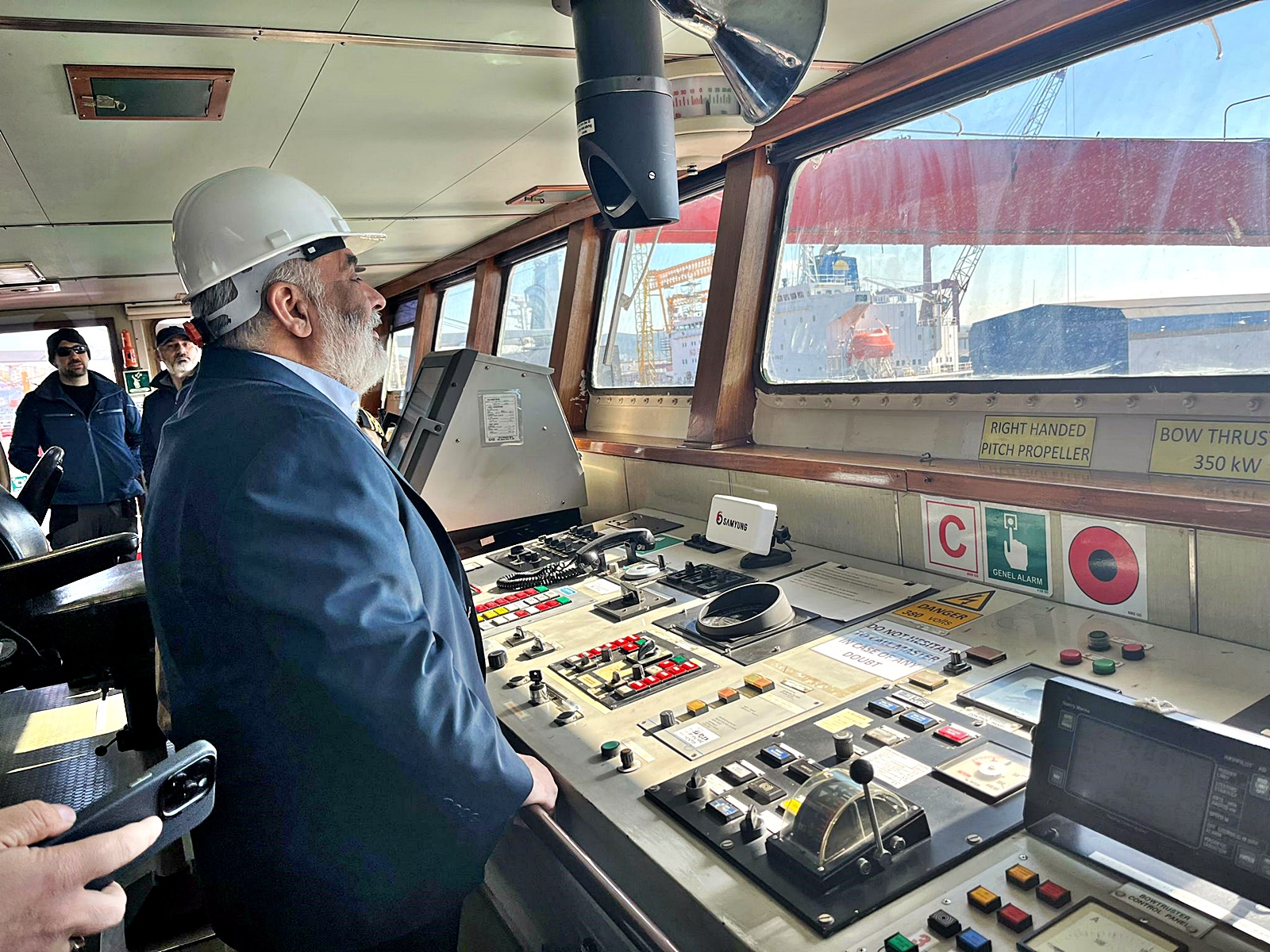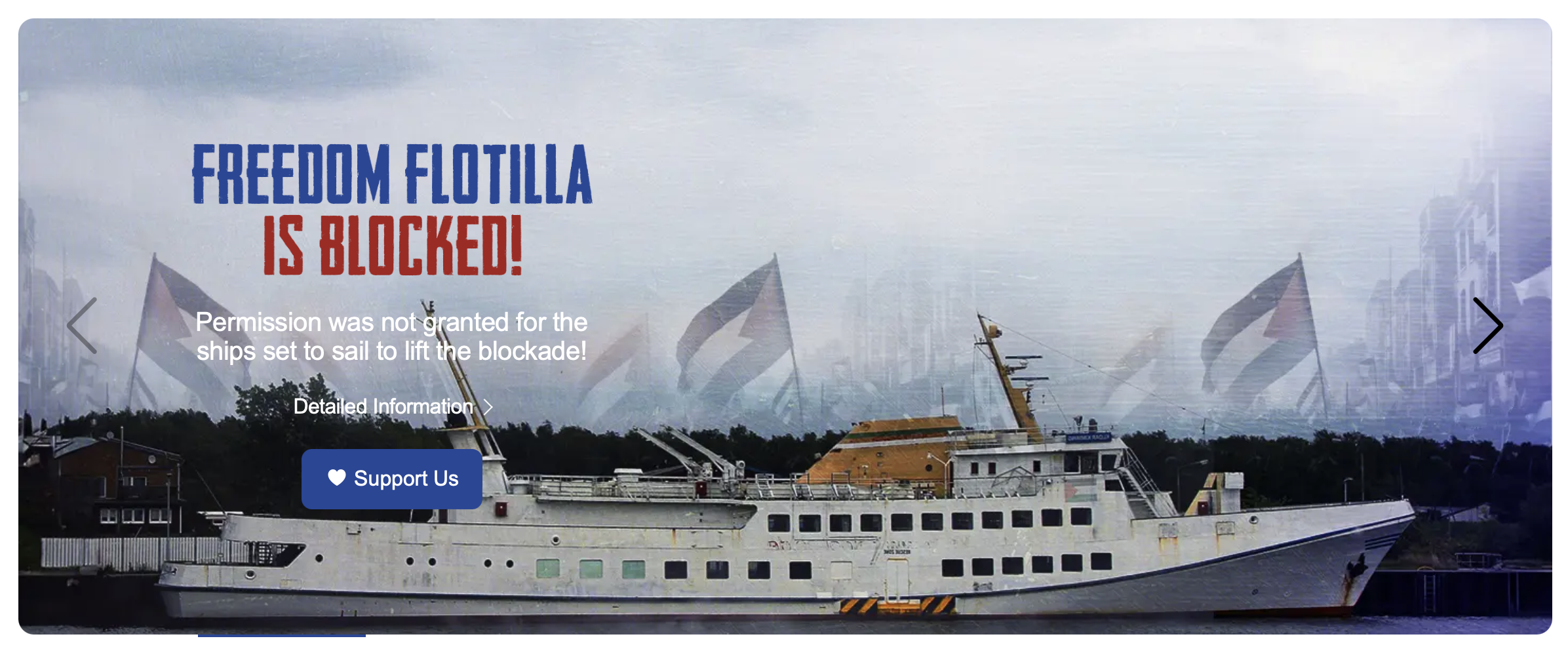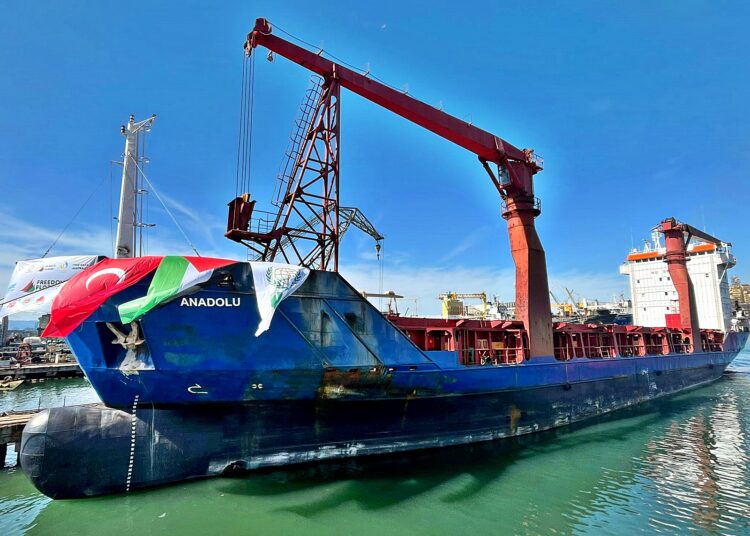Levent Kenez/Stockholm
Turkish President Recep Tayyip Erdogan has stopped an aid flotilla organized by Islamist and jihadist NGOs from departing Istanbul. The flotilla, consisting of several vessels transporting international activists, intended to deliver humanitarian aid to Gaza despite an Israeli blockade. By preventing the flotilla from setting sail, Erdogan averted a potential escalation in tensions between Turkey and Israel.
One of the organizers of the flotilla, the Mavi Marmara Association for Freedom and Solidarity, on behalf of the Freedom Flotilla Coalition (FFC) announced on August 3 that the FFC’s ships, which were set to sail to break the blockade on Gaza have not been granted permission to depart by the Turkish government. The organization said that despite meeting all legal requirements as well as the Turkish government’s strong support for Palestine, intense pressure from the US, UK and other NATO countries is believed to be the reason for the denial. The coalition is continuing its efforts to challenge Israel’s blockade on Gaza and raise awareness about the humanitarian crisis.
“After weeks of discussions with the Port Authority [in İstanbul], it is now clear to us that such permission will not be forthcoming from the Turkish government. We have been given no explanation as to why the Turkish government will not give permission for the departure when the government has been otherwise strongly supporting Palestine,” the FFC statement reads.
The FFC and its supporters expressed deep disappointment, stating that despite months of preparation, the Turkish government has now joined those complicit in maintaining Israel’s illegal blockade on Gaza. The coalition continues to call on governments to adhere to the International Court of Justice’s guidance on the illegality of the Israeli occupation and the duty to facilitate the unobstructed delivery of humanitarian aid to Palestinians in Gaza.
The statement, which was carefully worded regarding the government, came after Hamas leader Ismail Haniyeh was assassinated on July 31 in Tehran. The organizers had previously announced that the flotilla would set sail in March, and then later in April.

In an intriguing development, Bülent Yıldırım, the real organizer of the flotilla and president of the Foundation for Human Rights and Freedoms and Humanitarian Relief (İHH), a Turkish charity linked to Turkish Intelligence and radical jihadist groups, has remained silent on the matter. Despite his prominent role in organizing the flotilla and previous statements supporting its mission, Yıldırım has refrained from commenting on Erdogan’s decision to block the flotilla’s departure. This silence has sparked speculation and scrutiny, particularly given the high-profile nature of the situation and Yıldırım’s previously vocal stance on similar issues.

Yıldırım held a press conference on March 27 to promote the ships purchased for the flotilla, which he said would definitely reach Gaza. Known for his extreme antisemitic stance against Israel, Yıldırım previously faced criticism from Islamic circles for keeping silent about companies close to the government continuing trade with Israel. In 2010, when the Mavi Marmara flotilla, while attempting to deliver aid to Gaza, was intercepted by the Israeli navy, resulting in the tragic death of nine Turkish and one Turkish-American pro-Palestinian activists, Yıldırım said they had not undertaken any actions without permission from the Erdogan government and the Turkish Intelligence Organization (MİT).
Yıldırım also said nothing about Erdogan’s later claims that the 2010 flotilla had set sail without his prior knowledge and the president’s public criticism of the organizers.
In a previous announcement the İHH revealed that it had acquired three ships for its flotilla. The first vessel, renamed Anadolu (IMO: 9139127), was a general cargo ship built in 1997 and was operating under the flag of Guinea-Bissau. Formerly known as the Dalya H, the ship had a capacity of 5,500 tons.
In addition to the Anadolu, the İHH had also purchased another vessel, a passenger ship built in 1972 and operating under the flag of Palau. Formerly named The Majestic (IMO: 7211440), the ship was renamed Conscience and was anchored at Istanbul’s Tuzla port, awaiting further instructions.
The third vessel, renamed Akdeniz (IMO: 7615048), was a Ro-Ro/passenger ship sailing under the flag of Guinea-Bissau. With an overall length of 122.05 meters and a width of 18.5 meters, the ship arrived in Istanbul on April 9 after departing from Izmir’s Aliağa Port. The 45-year-old vessel, previously known as the Prince, had a history of service as a passenger ship between Greece, Italy and Croatia for many years.
Following public criticism in response to protests against Israel, the Erdogan government was compelled to adopt a tougher stance on the country.
Ankara announced on April 9 that it would impose trade restrictions on Israel in response to the conflict in Gaza.

“The decision will remain in effect until Israel declares an immediate ceasefire and allows a sufficient and uninterrupted flow of humanitarian aid into Gaza,” the Turkish Ministry of Trade announced. Attached to the announcement was a list of 54 products subject to export restrictions. However, experts expressed skepticism about the government’s decision due to the absence of customs tariff codes in the published list. According to reports in the Turkish media, it has also been alleged that trade with Israel will continue through third countries.
The Erdogan government has still been criticized by pro-Palestinian groups for allowing SOCAR (State Oil Company of Azerbaijan Republic) to transport Azerbaijani oil via pipelines to Turkey’s southern port of Ceyhan and subsequently ship it to Israel.
By preventing the new flotilla from departing, the Erdogan government has signaled its avoidance of facing a new crisis similar to the Mavi Marmara incident in 2010 or dealing with potential military intervention by Israel, which would require a more concrete response than Turkey is currently able to provide. Despite his strong rhetoric against Israel, Erdogan understands the necessity of realpolitik within his circle. In Turkey’s struggling economy, a crisis with the West, particularly the US, could hinder Erdogan’s team’s efforts to stabilize the economy ahead of a possible snap election. Turkey’s need for foreign investment makes avoiding such crises crucial. However, Erdogan occasionally makes statements designed to please his supporters. For instance, on July 31, during a party meeting in his hometown of Rize, he said regarding Israel, “Just as we entered Karabakh, just as we entered Libya, we should do the same with Israel. There is nothing stopping us. We just need to be strong to take this step.”












